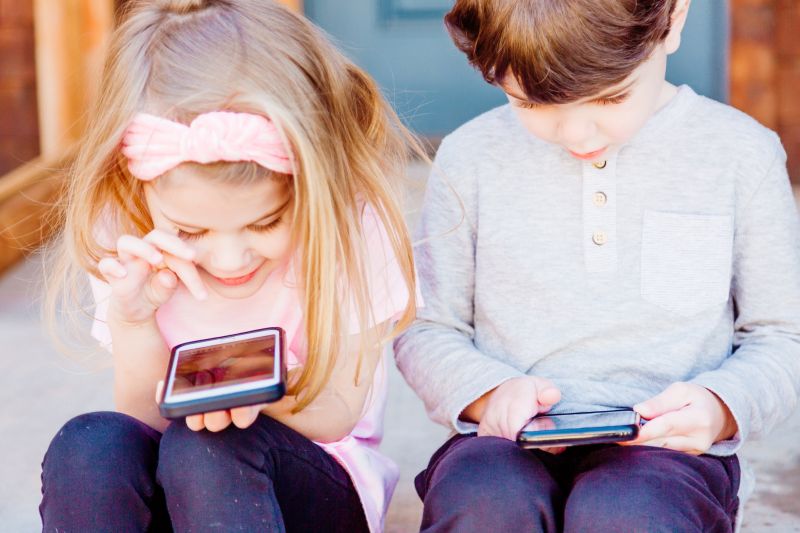
You’ve probably heard about social media by now. And if you haven’t, your kids have definitely been talking about it. Social media is everywhere and it’s not going away anytime soon. So, the question is – is your child ready for it? According to a study done by Common Sense Media, 42% of children 8 and younger have their own account on a social media platform. That number jumps to 78% for kids ages 12-17. Clearly, social media is something that we need to be talking about with our kids – but when is the right time? And how do we make sure they are using it safely?
When to Introduce Social Media
No matter when you decide to introduce your child to social media, it’s important that you have a conversation with them about the dangers and benefits of using it. It’s also important that you discuss the potential consequences of not following house rules or guidelines. The American Academy of Pediatrics recommends waiting until age 12 before allowing children to use any type of social media platform. This is primarily because younger kids may not be able to distinguish between appropriate and inappropriate content. They may also become overwhelmed by messages from strangers or difficulty keeping up with multiple conversations on different platforms
How to Prepare Your Child for Social Media Usage
Before even introducing your child to social media, you should create an agreement with them about what is and isn’t allowed. This agreement should include rules for communicating with strangers, posting photos or comments, deleting activity after a certain amount of time, and notifying an adult if something inappropriate happens. You may also want to set up parental controls to limit their access to specific types of content. How to stay safe on social media should also be discussed.
Teach Your Child About Privacy Settings
It’s important that your child understands the importance of privacy settings when it comes to social media usage. Make sure they know how to adjust their settings so that only people they know can see their posts and profile. It’s also important that they understand the potential consequences of sharing too much personal information online – like their address or phone number – as this can be a big safety risk.
Monitor Your Child’s Activity
Monitoring your child’s activity on social media is key to making sure they are staying safe. Make sure you go over their posts, photos and comments with them to make sure they are age-appropriate and don’t contain any personal information. Remind them that even though it may seem like no one is watching, it’s always best to err on the side of caution when posting online. It’s also important to make sure that they know who they can or cannot talk to online – and that if anyone ever makes them feel uncomfortable, they should immediately notify an adult.
Set Time Limits
In order to make sure your child isn’t overusing social media, it’s important to set limits on their usage. You can do this by setting up parental controls or timing apps that will limit the amount of time they can spend on a particular platform. It’s also important to remind them that social media is a great way to connect with friends, but it should never take away from things like homework, exercise and family time.
Talk About Cyberbullying
No one likes to talk about cyberbullying, but it’s something that can potentially happen when your child is using social media. Make sure they know the signs of cyberbullying and what to do if they ever encounter it. Remind them that no one should ever make them feel bad or scared online – and that there are steps they can take if someone does. This might include blocking a user, reporting suspicious activity or talking to an adult about it.
Encourage Positive Use of Social Media
Finally, it’s important to encourage your child to use social media in a positive way. Remind them that they can use the platform to express themselves and connect with friends – but that they should also be aware of potential risks like cyberbullying and online predators. They should also be encouraged to report any suspicious activity or anything that makes them feel uncomfortable.

In conclusion, introducing your child to social media can be an exciting yet nerve-wracking experience. But by following these steps and having conversations about safety and privacy settings, you can help ensure that your child is using the platform responsibly and safely. And as always, if there are ever any problems, don’t hesitate to contact the appropriate authorities. Have fun exploring the world of social media with your child!
















